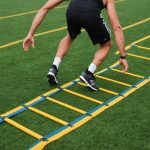Combat sports in the UK rely on a delicate balance of skill and fairness, making the role of referees vital. Evaluating matches requires not only a deep understanding of the sport but also keen judgment to ensure equity for all competitors. This piece explores effective strategies that referees can implement to enhance fairness, from clear communication to objective scoring methods. By focusing on these approaches, referees can foster a competitive environment where athletes feel respected and valued.
Importance of Fairness in Combat Sports Refereeing
In the high-stakes world of combat sports, fairness in refereeing is crucial to maintaining the sport's integrity. Referees play a pivotal role in ensuring that matches are conducted fairly and that athletes compete on a level playing field. Their decisions can directly influence the outcome of a match, making their role essential in upholding the sport's reputation.
Have you seen this : Mastering Class Control: Strategies for UK Martial Arts Instructors to Thrive with Large Groups
Biased refereeing can have severe consequences for both athletes and the sport's reputation. When referees make decisions that favour one competitor over another, it not only affects the immediate outcome but also undermines the trust of fans and participants. This can lead to a loss of credibility, as the fairness of the competition is called into question.
Combat sports officials have significant ethical responsibilities. They must remain impartial and make decisions based solely on the rules and the actions observed during the match. This commitment to fairness ensures that the sport remains competitive and respected. By adhering to these ethical standards, referees contribute to the overall integrity of combat sports, fostering an environment where athletes can showcase their skills without fear of unfair treatment.
Additional reading : Ultimate Hydration Strategies for Intense Martial Arts Training in the UK
Key Strategies for Ensuring Impartiality
Ensuring impartiality in combat sports refereeing is critical for maintaining fairness and credibility. Implementing effective impartiality strategies involves several key elements, including comprehensive referee guidelines and continuous education.
Training and Certification for Referees
A robust training and certification process is essential for developing competent referees. Training programs should cover the sport's rules in detail, ethical decision-making, and situational judgment. Certification ensures that referees have met the necessary standards and are prepared to enforce the rules impartially.
Importance of Continuous Education
Continuous education is vital for referees to stay informed about evolving rules and regulations. Regular workshops and seminars help referees update their knowledge and adapt to changes in the sport. This ongoing learning process reinforces their commitment to impartiality and enhances their ability to make fair decisions.
Utilizing Technology in Decision Making
Integrating technology, such as video review systems, into refereeing can significantly improve decision-making transparency. These systems provide referees with the tools to review contentious moments objectively, ensuring that their judgments reflect the reality of the match. By embracing technological advancements, referees can uphold impartiality and maintain the integrity of combat sports.
Common Challenges Faced by Referees
Referees in combat sports encounter numerous challenges that can impact their ability to officiate matches fairly. These challenges require them to remain vigilant and composed throughout each event.
Pressure from Spectators and Teams
One significant challenge is the pressure exerted by spectators and teams. In the heat of competition, referees are often subjected to intense scrutiny and vocal criticism. This environment can create a stressful atmosphere, potentially influencing their decision-making process. It's crucial for referees to develop resilience and focus to withstand these external pressures and maintain their impartiality.
Managing Personal Biases and Emotions
Another challenge is managing personal biases and emotions. Referees must constantly be aware of their own predispositions and ensure these do not cloud their judgment. Emotional responses to certain situations can inadvertently affect their decisions. To combat this, referees undergo extensive training to recognize and mitigate any biases, allowing them to make objective calls based on the rules and actions observed.
Navigating Controversial Calls
Referees often face the difficult task of navigating controversial calls. These situations require quick thinking and a thorough understanding of the rules. Making the right call in a contentious moment is essential for maintaining the integrity of the match and the sport as a whole.
Techniques for Effective Match Evaluation
Effective match evaluation techniques are vital for referees to ensure fair and unbiased officiating. By implementing thorough evaluation methods, referees can enhance their decision-making skills and maintain the integrity of combat sports.
Pre-Match Preparation
Before the match begins, referees should engage in comprehensive pre-match preparation. This includes reviewing the rules and regulations specific to the upcoming event and understanding the competitors' styles and tactics. A thorough match briefing helps referees anticipate potential challenges and ensures they are mentally prepared to handle various situations with confidence and impartiality.
In-Match Decision-Making
During the match, referees must rely on real-time assessment tools to make accurate decisions. This involves observing the match closely, staying focused, and using technology, such as instant replay systems, to verify crucial moments. These tools support referees in making informed judgments and maintaining fairness throughout the competition.
Post-Match Review and Reflection
After the match, conducting a detailed post-match review is essential. Referees should engage in debrief sessions to analyze their performance, identifying areas for improvement. Reflecting on decisions made during the match allows referees to refine their skills and enhance their effectiveness in future officiating roles. This continuous learning process is crucial for upholding high standards in refereeing.
Case Studies of Successful Refereeing Practices
Examining referee case studies provides valuable insights into maintaining fairness in combat sports. These examples highlight best practices that can be adopted across the board.
One standout case involves referee Herb Dean, known for his consistent application of rules in high-profile matches. His ability to make swift, fair decisions has earned him respect within the industry. In a notable UFC fight, Dean's decision to stop the match due to a fighter's inability to defend himself was praised for prioritising athlete safety while adhering to the sport's regulations.
Another example is the 2012 Olympic boxing match between Anthony Joshua and Roberto Cammarelle. The referee's decision to call for a standing count for Joshua, despite the pressure from the audience, showcased the importance of maintaining impartiality under scrutiny. This decision was pivotal in Joshua's eventual victory, demonstrating the influence of fair refereeing on match outcomes.
These best practices teach us that even in controversial match outcomes, strict adherence to rules and ethical standards can uphold the sport's integrity. By analysing these high-profile matches and decisions, referees can learn to navigate challenges effectively, ensuring fairness and credibility in their officiating roles.
Role of Communication in Refereeing
Communication is a cornerstone of effective refereeing in combat sports. Mastery of communication skills enhances the referee's ability to manage matches fairly and maintain respect from all parties involved.
Engaging with Fighters and Coaches
Referees must excel in engaging with fighters and coaches to ensure smooth interactions. This involves clear referee interaction before, during, and after matches. Effective engagement helps clarify rules and expectations, reducing misunderstandings. By maintaining open lines of communication, referees can address concerns proactively, fostering a cooperative environment.
Communicating Decisions Clearly
Clear communication of decisions is essential for maintaining transparency and fairness. Referees should articulate their judgments succinctly and confidently, ensuring all parties understand the rationale behind their calls. This clarity helps prevent disputes and reinforces the referee's authority, promoting respect for their role in the match.
Building Trust with Stakeholders
Building trust with stakeholders, including fighters, coaches, and fans, is crucial for a referee's credibility. Techniques for effective pre-match communication, such as briefings and rule explanations, lay the groundwork for trust. Additionally, consistency and fairness in decision-making further solidify this trust. By fostering respect through reliable communication, referees contribute to the sport's integrity.
Incorporating Feedback for Improvement
In the dynamic world of combat sports, referee feedback is vital for enhancing performance and maintaining fairness. Peer reviews and mentorship play a significant role in this process. Experienced referees often provide valuable insights and guidance to their peers, helping them refine their skills and decision-making abilities. This collaborative approach fosters a culture of continuous learning and improvement.
Structured feedback mechanisms are essential for referees to assess their performance objectively. These mechanisms may include regular evaluations by senior officials, self-assessment tools, and performance reviews. By systematically analyzing their actions, referees can identify areas of strength and opportunities for growth, ensuring they remain impartial and effective in their roles.
Incorporating athlete feedback is another crucial aspect of referee development. Athletes, who experience the match firsthand, can offer unique perspectives on a referee's performance. By actively seeking and considering this feedback, referees can gain insights into how their decisions are perceived and make necessary adjustments to improve their officiating skills.
- Peer reviews and mentorship
- Structured feedback mechanisms
- Utilizing athlete feedback
These elements collectively contribute to a robust framework for referee performance improvement, ensuring that they uphold the highest standards of fairness and integrity in combat sports.
Resources for Combat Sports Referees
Combat sports referees have access to a variety of referee resources designed to enhance their skills and knowledge. These resources are crucial for maintaining high standards in officiating.
Recommended Training Programs
Numerous reputable organizations offer training programs tailored for combat sports referees. These programs provide comprehensive training materials covering rules, ethics, and decision-making strategies. Attending such programs ensures referees are well-equipped to handle the demands of their roles effectively.
Online Resources and Communities
The internet offers a wealth of online resources for referees to continue their education. Platforms such as forums and social media groups allow referees to exchange experiences and insights. These communities foster a supportive environment where referees can discuss challenges and share solutions, enhancing their overall competence.
Accessing Professional Networks
Joining professional networks and referee associations offers numerous benefits. These networks provide access to exclusive resources, mentorship opportunities, and professional development events. Being part of such associations helps referees stay updated on industry trends and best practices, ensuring they remain at the forefront of their field.
Future Trends in Combat Sports Refereeing
The future of refereeing in combat sports is set to be shaped by technological advancements and innovative practices. One of the most promising emerging technologies is the use of artificial intelligence (AI) to assist referees. AI systems can analyse match footage in real-time, providing instant feedback on decisions and highlighting potential errors. This technology not only enhances decision-making accuracy but also supports referees in maintaining fairness.
In addition to technology, the evolving rules and regulations within combat sports are significantly impacting referees' roles. As sports organisations strive to improve safety and fairness, referees must adapt to new guidelines that dictate match conduct and athlete behaviour. Staying informed about these changes is crucial for referees to perform their duties effectively.
Another key trend is the increasing use of analytics in match evaluation. By analysing data from past matches, referees can identify patterns and improve their decision-making processes. This data-driven approach allows referees to anticipate potential issues and refine their officiating skills.
These innovations and adaptations are essential for ensuring that referees can continue to uphold the integrity of combat sports in an ever-evolving landscape.











